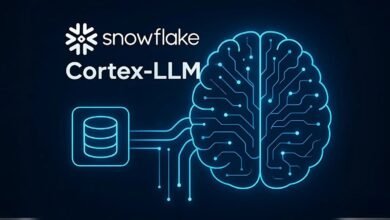Unlock Business Value with Logical Data Management

▼ Summary
– Denodo announced the publication of “The Rise of Logical Data Management,” a book explaining how logical data management helps businesses in the AI era.
– Logical data management uses virtual connections to unify data systems, centralize security, and create a data marketplace without moving data physically.
– This approach is essential for providing AI-ready data that is governed, secure, and real-time, which physical repositories like data lakehouses cannot deliver alone.
– The book highlights business benefits such as improved customer experience, streamlined operations, and better performance for data leaders and stakeholders.
– Denodo is offering complimentary access to the book and hosting a LinkedIn Live event to discuss logical data management with the author and company executives.
In today’s complex data environment, businesses face mounting pressure to deliver AI-ready information while maintaining robust governance and security protocols. Logical data management emerges as a strategic solution that connects disparate data sources through virtual layers rather than physical movement, creating a unified framework for organizational data access. This approach has gained significant traction with the recent publication of “The Rise of Logical Data Management” by O’Reilly, featuring insights from industry expert Christopher Gardner.
Christopher Gardner, a business intelligence analyst and lead Tableau developer at the University of Michigan, describes logical data management as “a data management approach based on logical or virtual connections to data.” This methodology applies to existing organizational data structures to establish consistent security controls, develop centralized data marketplaces, and harmonize diverse underlying systems into standardized formats.
The growing necessity for logical data management stems from contemporary demands around artificial intelligence implementation and self-service data access. AI systems require governed, trusted, and secure data delivered in real-time, specifications that traditional physical data management systems often struggle to meet independently. Similarly, self-service data access depends on immediate translation of raw data into business-ready terminology, a capability that physical data management technologies typically lack.
Alberto Pan, Denodo’s executive vice president and chief technical officer, emphasizes that “organizations are spending time and money on moving, storing, and maintaining persisted data, even when it is not necessary.” He further notes that “a logical approach exposes new forms of data to multiple users, AI agents, and AI applications, to support a wide range of use cases, including real-time use cases.”
While primarily targeting C-level technology and data leaders, the book thoroughly explores the substantial business advantages offered by logical data management. These benefits span from enhanced customer experiences to streamlined operational processes, with detailed examples demonstrating performance and scalability improvements in demanding environments.
Gardner reflects that “logical data management is a promising strategy, offering a flexible, straightforward way to simplify access to all sorts of information across the organization, and make it ready for self-service and AI.”
Industry commentator Kate Strachnyi, founder of DATAcated, appreciated the book’s library analogy: “You can think of a logical data layer as a library, where you have access to the knowledge it contains without having to obtain your own copy of every book.” This comparison effectively illustrates how logical data management eliminates redundant data copying while maintaining accessibility.
Paul Weiskopf, Advisory Board Member for Denodo, highlighted another compelling passage: “It’s not just about managing data, it’s about empowering data to be a decisive tool for achieving customer satisfaction, operational excellence, and innovative breakthroughs.”
For those interested in exploring this topic further, Denodo is hosting a LinkedIn Live discussion on October 21st featuring Christopher Gardner, Alberto Pan, Ravi Shankar, and Kate Strachnyi. The company is also providing complimentary access to “The Rise of Logical Data Management” through their website.
(Source: MEA Tech Watch)





